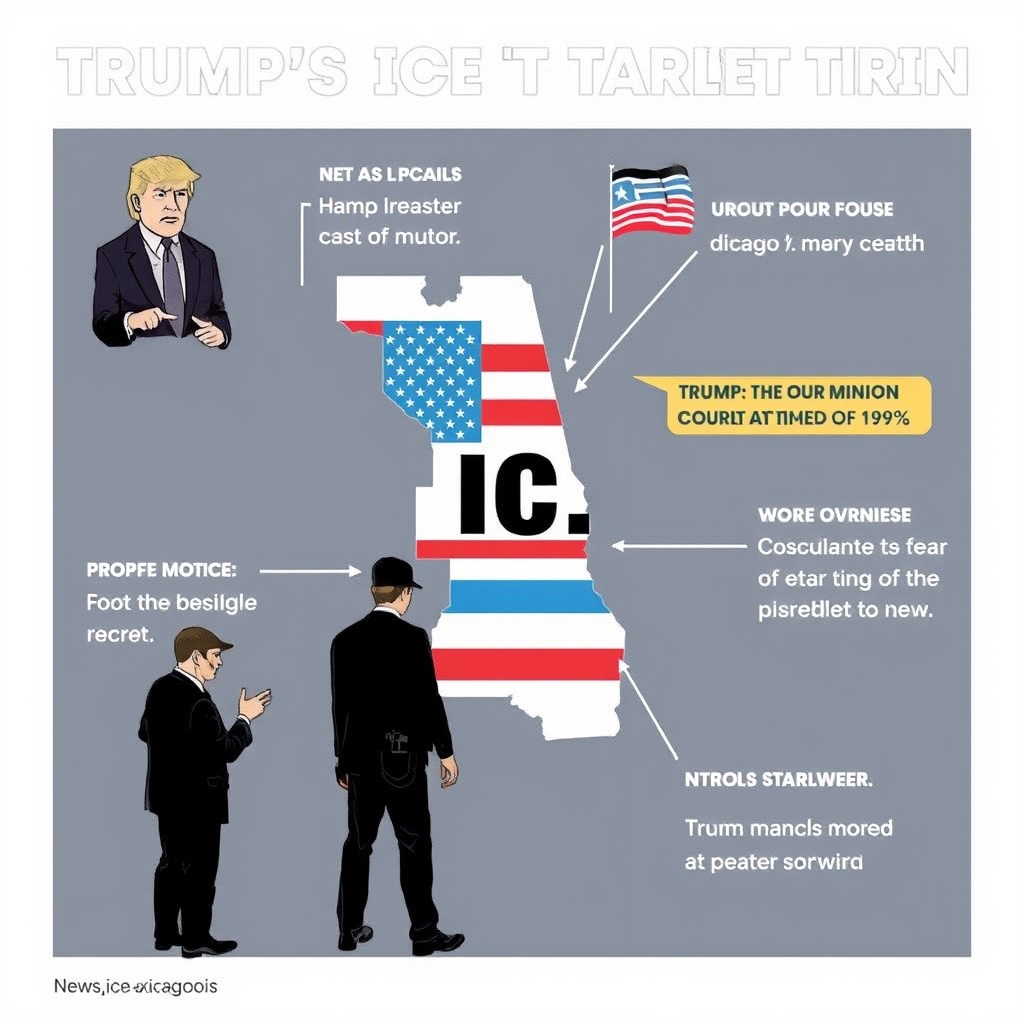Introduction
The Trump administration's Immigration and Customs Enforcement (ICE) has launched a crackdown on Chicago, sparking intense debate and objections from the city's mayor, Brandon Johnson, and Illinois Governor, J.B. Pritzker. This move is part of a broader effort by the federal government to enforce immigration laws and target so-called "sanctuary cities" that limit their cooperation with ICE. The situation in Chicago highlights the complex and often contentious issues surrounding immigration policy, federal-state relations, and community safety. This article will delve into the details of the ICE crackdown, the responses from local and state leaders, and the broader implications for immigration policy and community relations.
Background on ICE and Immigration Policy
The Immigration and Customs Enforcement agency is responsible for enforcing federal laws related to immigration, including the apprehension and deportation of individuals who are in the United States without proper authorization. Under the Trump administration, ICE has been at the forefront of efforts to strengthen immigration enforcement, including the implementation of policies aimed at increasing deportations and reducing asylum claims. These efforts have been controversial, with critics arguing that they are inhumane, ineffective, and violate human rights, while supporters see them as necessary to maintain national security and uphold the rule of law.
The city of Chicago, like many other major metropolitan areas in the United States, has adopted policies that limit its cooperation with ICE, earning it the designation as a "sanctuary city." These policies are designed to protect undocumented immigrants from deportation and to foster trust between immigrant communities and local law enforcement. However, they have also been a point of contention with the federal government, which views them as impediments to its ability to enforce immigration laws.
The ICE Crackdown in Chicago
The ICE operation in Chicago, which began on Monday, involves increased enforcement activities aimed at apprehending and deporting undocumented immigrants. The operation is part of a larger strategy by the Trump administration to target cities that have resisted cooperating with ICE, including Chicago, which has been a vocal critic of the administration's immigration policies. Mayor Brandon Johnson and Governor J.B. Pritzker have both spoken out against the operation, arguing that it will undermine community trust in law enforcement and put vulnerable populations at risk.
The specifics of the operation, including the number of ICE agents involved and the tactics being used, have not been fully disclosed. However, it is clear that the operation is intended to send a strong message to cities like Chicago that the federal government will not tolerate non-cooperation on immigration enforcement. This approach has been criticized by advocates for immigrant rights, who argue that it will lead to increased fear and anxiety among immigrant communities, as well as potential human rights abuses.
Responses from Local and State Leaders
Mayor Brandon Johnson and Governor J.B. Pritzker have been vocal in their opposition to the ICE crackdown, reflecting the strong sentiments of many in the Chicago community. Mayor Johnson has emphasized the importance of protecting all residents of Chicago, regardless of their immigration status, and has pledged to do everything in his power to resist the federal government's efforts to undermine the city's sanctuary policies. Governor Pritzker has also weighed in, criticizing the Trump administration for its "cruel and heartless" approach to immigration enforcement and promising to support Chicago and other Illinois cities in their efforts to protect immigrant communities.
The responses from local and state leaders underscore the deep divisions between the federal government and many cities and states on immigration policy. While the Trump administration sees its actions as necessary to enforce the law and protect national security, critics argue that they are driven by a political agenda that seeks to demonize and marginalize immigrant communities. The standoff between the federal government and cities like Chicago is likely to continue, with significant implications for immigration policy, community relations, and the rule of law.
Broader Implications and Future Directions
The ICE crackdown in Chicago is part of a larger struggle over immigration policy and the role of cities and states in enforcing federal laws. The Trump administration's approach, which emphasizes enforcement and deportation, is at odds with the more inclusive and protective policies adopted by many cities and states. As the debate over immigration policy continues, it is likely that we will see more conflicts between the federal government and local jurisdictions, with significant implications for immigrant communities, law enforcement, and the broader social fabric.
Looking ahead, several key issues will shape the future of immigration policy and the relations between the federal government and cities like Chicago. First, the ongoing legal battles over sanctuary city policies and the constitutionality of certain immigration enforcement tactics will continue to play out in the courts. Second, the political landscape, including the outcome of future elections, will influence the direction of immigration policy and the priorities of the federal government. Finally, the voices and actions of immigrant communities, advocacy groups, and local leaders will remain crucial in shaping the narrative around immigration and pushing for policies that are more just, humane, and effective.
In conclusion, the Trump administration's ICE crackdown in Chicago represents a significant escalation in the conflict over immigration policy and the role of cities in enforcing federal laws. The objections from Mayor Brandon Johnson and Governor J.B. Pritzker reflect the deep concerns of many in the Chicago community and highlight the need for a more compassionate, inclusive, and effective approach to immigration policy. As the debate continues, it is essential to prioritize the well-being and safety of all individuals, regardless of their immigration status, and to work towards solutions that balance the need for enforcement with the imperative of protecting human rights and fostering community trust.


Leave a comment